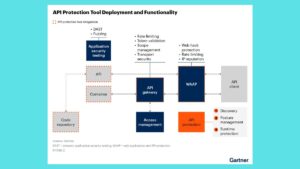The Future of Performance Management Software: Innovations and Trends


Performance management has evolved significantly over the years, transitioning from traditional annual reviews to more dynamic, continuous feedback processes. Central to this evolution is the role of technology, particularly performance management software, which continues to shape how organizations assess, develop, and retain their talent. As we look ahead, several trends and innovations are set to redefine the future landscape of performance management software.
1. Shift Towards Continuous Feedback and Coaching
Traditional annual performance reviews are giving way to continuous feedback mechanisms facilitated by performance management software. These systems enable ongoing conversations between managers and employees, fostering real-time feedback loops that are more agile and responsive to performance issues and achievements. AI-driven tools can analyze feedback data to provide personalized coaching recommendations, helping employees improve continuously.
2. Integration of AI and Predictive Analytics
Artificial intelligence is playing a pivotal role in enhancing the capabilities of performance management software. AI algorithms can analyze large datasets to identify patterns, trends, and correlations in employee performance metrics. This enables predictive analytics, where software can forecast future performance trends, potential skill gaps, and even predict which employees are at risk of leaving. Such insights empower HR teams to take proactive measures in talent development and retention strategies.
3. Personalization and Customization
Modern performance management software is increasingly personalized to meet the unique needs of employees and organizations. Customizable dashboards allow employees to track their own performance metrics, set goals, and monitor progress in real-time. Managers can tailor feedback and development plans based on individual strengths, weaknesses, and career aspirations, creating a more engaging and meaningful performance management experience.
4. Emphasis on Employee Well-being and Engagement
The future of performance management software extends beyond metrics and KPIs to encompass employee well-being and engagement. Advanced software solutions incorporate employee sentiment analysis and engagement surveys to gauge morale and job satisfaction levels. This holistic approach helps organizations identify factors contributing to employee stress or disengagement, enabling proactive interventions to improve overall well-being and productivity.
5. Enhanced User Experience with Mobile and Cloud Integration
As workplaces become more decentralized and flexible, performance management software is adapting with mobile-friendly interfaces and cloud-based solutions. Mobile apps allow employees and managers to access performance data, provide feedback, and set goals anytime, anywhere. Cloud integration ensures seamless updates and data accessibility, supporting remote work arrangements and global teams.
6. Focus on Development and Learning
Modern performance management is increasingly intertwined with employee development and learning initiatives. Software platforms integrate with learning management systems (LMS) to align performance goals with training programs and skill development opportunities. This integration not only enhances employee capabilities but also strengthens organizational resilience by fostering a culture of continuous learning and improvement.
7. Data Security and Privacy Measures
With the rise in data-driven HR practices, ensuring data security and privacy remains paramount. Future performance management software will incorporate robust encryption protocols, access controls, and compliance measures to protect sensitive employee information. GDPR and other data protection regulations will continue to influence software development, emphasizing ethical data usage and transparency.
8. Collaborative and Transparent Performance Management
The future of work is collaborative, and performance management software reflects this trend by promoting transparency and collaboration across teams. Features such as peer feedback mechanisms, team-based goal setting, and project-specific performance tracking facilitate a more cohesive and aligned workforce. This collaborative approach not only improves team dynamics but also enhances overall organizational performance.
Conclusion
As organizations navigate an increasingly complex and competitive landscape, the role of performance management software becomes pivotal in driving employee engagement, productivity, and organizational success. The future promises innovative advancements driven by AI, personalization, continuous feedback, and enhanced user experiences. By embracing these trends, organizations can transform their performance management processes into strategic tools for talent development, retention, and achieving business objectives in the digital age.







